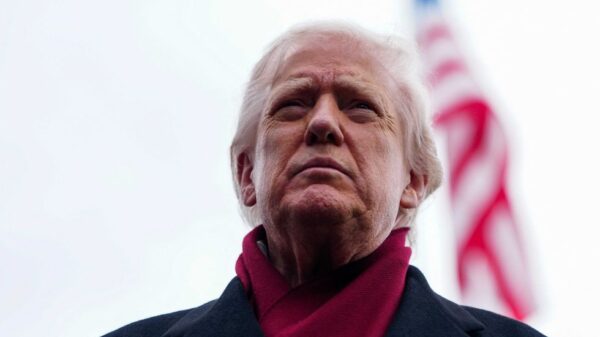Senate Majority Leader John Thune and several Republican senators have firmly rejected President Donald Trump‘s request to abolish the filibuster, a longstanding feature of the Senate that safeguards minority rights. This decision comes amid a government shutdown that has been increasingly unpopular among voters, as Trump seeks to expedite the reopening of government operations without bipartisan cooperation.
The filibuster has been an integral part of Senate proceedings since its inception in 1789. Trump’s demand to remove it reflects a growing impatience within his administration, which aims to push through legislation without the need for negotiation with Democratic lawmakers. However, Thune and his Republican colleagues recognize the potential consequences of such a move.
Thune has maintained that the filibuster is a crucial mechanism that has endured through various administrations and party control. The Senate’s ability to stall legislation has been tested throughout history, but it remains a key element of the legislative process. The current Republican-led Senate, often seen as compliant with Trump’s agenda, has drawn a line at altering this rule.
Critics note that Trump’s eagerness to change the rules may stem from a sense of urgency as the government shutdown continues to alienate voters. If the filibuster were eliminated, it could pave the way for more unilateral decisions that may not align with the interests of the broader public.
There is speculation that GOP lawmakers are aware that giving in to Trump’s demands could lead to a significant shift in the political landscape, further enabling his attempts to reshape the country according to his vision. Some analysts suggest that the decision to keep the filibuster intact may be driven by self-interest, allowing Senate Republicans to avoid direct conflict with the White House while still protecting their own political future.
The implications of removing the filibuster are significant. In 2013, then-Senate Majority Leader Harry Reid made a controversial decision to eliminate the 60-vote requirement for presidential nominations, a move that has had lasting repercussions. The current judicial landscape, with numerous lifetime appointments made under Trump, is a direct result of changes to the rules surrounding nominations.
Despite recent adjustments, including allowing for larger batches of nominations to be processed, Thune’s resistance to further changes indicates a cautious approach as the 2024 Midterm Elections approach. As public sentiment shifts, the Republican Party faces potential challenges from voters who may feel misled by Trump’s promises. Maintaining the filibuster could serve as a buffer against the fallout from unpopular decisions.
Thune’s stance also extends to Trump’s attempts to eliminate the so-called blue slip process, which permits senators to approve or disapprove federal judicial and prosecutorial nominations from their home states. This tradition is seen as an essential check on the nomination process, ensuring that qualified candidates are considered.
In conclusion, Thune’s refusal to alter the filibuster reflects a strategic decision within the Republican Party as it navigates a complex political landscape. The balance between Trump’s influence and the need to protect minority rights within the Senate is a critical issue that will likely shape the upcoming election cycle. As both parties prepare for the 2024 Midterm Elections, the consequences of these legislative decisions will resonate for years to come.



































































